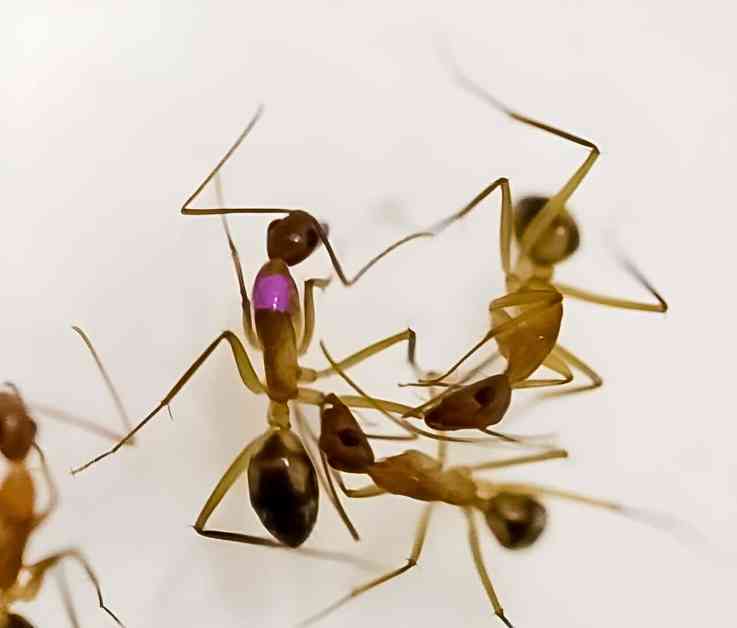The life of a Florida carpenter ant can be tough due to their conflicts with rival colonies resulting in severe injuries. Scientists have discovered a surprising behavior in these ants where they perform amputations on injured nest mates to prevent infections, which is a unique trait among the animal kingdom.
Research conducted by Dany Buffat and ecologist Erik Frank revealed that amputated ants survived 90% of the time, showing the effectiveness of this behavior. The amputations are systematic and seem to be consensual, with ants presenting their injured legs to their nest mates for treatment.
The study found that amputations were only performed on ants with thigh injuries, which had a higher survival rate due to lower hemolymph flow, making it harder for bacteria to infect the body. In contrast, lower leg injuries had a lower survival rate when amputated, as bacteria could infect the ant’s body more easily.
The ants seem to be aware of the importance of amputations for survival, spending more time on cleaning tibia wounds to prevent lethal infections. This behavior showcases the ants’ sophisticated approach to colony survival and resource conservation.
The findings have implications for ant colonies and evolution, demonstrating the innate cooperation and care within the colony. The researchers plan to conduct similar experiments with other ant species to see if amputation is common in different groups.
Overall, the study sheds light on the remarkable medical behavior of Florida carpenter ants and their innate ability to care for injured nest mates, showcasing a level of cooperation that rivals human medical systems. This unique behavior highlights the complexity and sophistication of ant colonies in ensuring survival and reducing the spread of infections.





